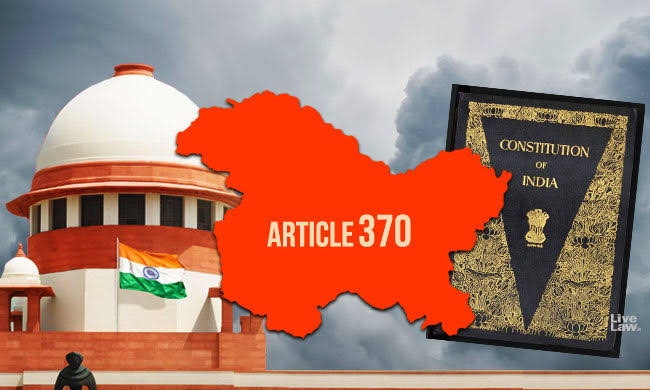It ruled that it will not interfere with the case that challenged the discretionary powers of the Lieutenant Governor of Jammu and Kashmir to nominate five MLA members for the assembly for the region. This verdict has been given by a panel of Justices Sanjiv Khanna and PV Sanjay Kumar, and they have advised petitioner Ravinder Kumar Sharma to first move the case to the Jammu and Kashmir and Ladakh High Court.
The source of challenge has now become the Jammu and Kashmir Reorganisation Act 2019, which reshapes the political terrain of the area by dividing it into two Union territories: Jammu & Kashmir and Ladakh.
Under this Act, the LG can nominate five MLAs with explicit objectives of serving representatives for the displaced people of Kashmir and those staying in Pakistan-occupied Kashmir. This nomination power therefore increases the total number of members in the assembly from 45 to 48 and thereby changes the composition and dynamics of majority control in the assembly.
Sharma’s counsel, Senior Advocate Abhishek Manu Singhvi, argued before the court that the nomination of unelected MLAs by the LG could illegally influence the outcome of the election and jeopardize the democratic process. Scrutiny with concerns that the legitimacy of appointed people participating in an elected assembly and perhaps vote-bank penetration by them at the cost of elected members had been interlinked with the controversy in the petition.
That is the viewpoint of the bench, as pointed out by the Supreme Court’s decision not to consider the case at this time. They emphasized that avoiding subordinate courts very often leads to the miss of crucial information. The judges said, “In many cases where we are entertaining at first instance, we see many things left out.” Issues must be settled at the level of the High Court before, they contended, being taken to the Supreme Court, in what appears to be a constitutional issue on governance in Jammu and Kashmir-a continuance of discussions on how the region ought to be governed in light of being declared a Union Territory.
All augmentation of the power of the LG and implications for local governance are considered a controversial matter by both political protagonists and the common man.
The petitioner would now have to take his grievances against the LG’s power to the Jammu and Kashmir and Ladakh High Court as the judicial process moves ahead. The outcome of this judicial tussle would considerably impact the functioning and electoral scene of the Jammu and Kashmir assembly.In a major ruling, the Supreme Court of India declined to hear a case that contested the Lieutenant Governor (LG) of Jammu and Kashmir’s right to choose five Legislative Assembly (MLA) members for the assembly for the area. A panel made up of Justices Sanjiv Khanna and PV Sanjay Kumar rendered this ruling and recommended that the petitioner, Ravinder Kumar Sharma, first file a case with the Jammu and Kashmir and Ladakh High Court.
The Jammu and Kashmir Reorganisation Act of 2019, which reshaped the political terrain of the area after it was divided into the two Union Territories of Jammu & Kashmir and Ladakh, is the main source of the challenge.
The LG may designate five MLAs under this Act with the express purpose of representing the displaced Kashmiri people and people living in Pakistan-occupied Kashmir. By increasing the overall number of assembly members from 45 to 48 through this nomination authority, the dynamics of majority control within the assembly are changed.
Sharma’s attorney, Senior Advocate Abhishek Manu Singhvi, contended that the LG’s nomination of unelected MLAs could improperly affect election results and jeopardize the democratic process. Concerns regarding the legitimacy of appointed officials taking part in an elected assembly and perhaps distorting representation in favor of the nominated members were expressed in the petition.
The importance of following judicial procedures has been brought to light by the Supreme Court’s decision not to consider the case at this time, as the bench has noted. They stressed that avoiding subordinate courts frequently results in the omission of crucial information. The judges emphasized the idea that issues should be decided at the High Court level before being taken to the Supreme Court, saying, “In many cases where we have entertained at first instance, we see many things get left out.”
This decision is made against the backdrop of continuing discussions concerning Jammu and Kashmir’s governance, particularly in light of the region’s designation as a Union Territory.
Both political stakeholders and the general public see the LG’s expanded powers and the implications for local governance to be divisive topics.
The petitioner must now present his complaints against the LG’s power to the Jammu and Kashmir and Ladakh High Court as the judicial procedure progresses. The result of this court dispute could have a big impact on Jammu and Kashmir’s assembly’s operations and electoral landscape.
